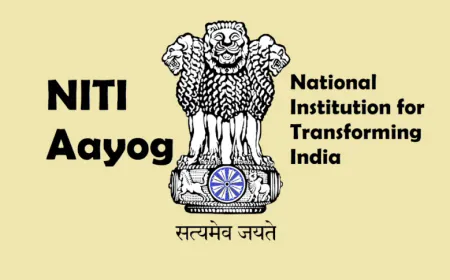MBBS vs. BAMS in 2024: Choosing the Right Path in Healthcare
Explore the distinctions between MBBS and BAMS in 2024 to make an informed decision about your medical career. Understand the medical philosophies, career prospects, and personal values that shape your choice.

Introduction
In the ever-evolving world of healthcare, the choice between pursuing a Bachelor of Medicine and Bachelor of Surgery (MBBS) or a Bachelor of Ayurvedic Medicine and Surgery (BAMS) has become increasingly significant for aspiring medical professionals in 2024. These two paths offer unique approaches to medicine and can lead to distinct career opportunities. This article delves into the differences between MBBS and BAMS to help students make informed decisions about their medical careers.
MBBS: The Conventional Path to Allopathic Medicine
MBBS, which stands for Bachelor of Medicine and Bachelor of Surgery, is a widely recognized and conventional path to becoming a medical doctor. Here are some key aspects of MBBS in 2024:
1. **Allopathic Medicine**: MBBS programs focus on allopathic or conventional medicine. Students learn to diagnose, treat, and prevent diseases using Western medical practices, including pharmaceuticals, surgery, and other modern interventions.
2. **Rigorous Education**: MBBS is known for its demanding curriculum, encompassing a wide range of subjects such as anatomy, physiology, pharmacology, surgery, internal medicine, and more. It requires dedication and a strong academic foundation.
3. **Clinical Training**: MBBS programs provide extensive clinical training, including internships and rotations in various specialties. This practical experience is vital for gaining hands-on medical skills.
4. **Global Recognition**: An MBBS degree is recognized worldwide, allowing graduates to practice medicine in many countries. It offers the potential for a broad range of career opportunities, from clinical practice to research and teaching.
BAMS: The Ayurvedic Approach to Medicine
BAMS, or Bachelor of Ayurvedic Medicine and Surgery, is a program that focuses on traditional Indian medicine known as Ayurveda. In 2024, BAMS programs continue to attract students who are interested in alternative and holistic healthcare:
1. **Ayurvedic Medicine**: BAMS programs center on Ayurvedic medicine, which emphasizes a holistic approach to healing. Students learn to use natural remedies, diet, lifestyle changes, and Ayurvedic therapies to promote wellness.
2. **Ayurvedic Principles**: The curriculum covers Ayurvedic principles, including the understanding of doshas (bioenergetic forces), Ayurvedic herbs, panchakarma therapies, and disease management through natural means.
3. **Holistic Health**: BAMS graduates are equipped to consider the whole person, addressing not only the symptoms of illness but also the root causes and the individual's overall well-being. This approach aligns with the growing interest in holistic and alternative healthcare.
4. **Ayurvedic Practitioner**: BAMS graduates become Ayurvedic practitioners who diagnose and treat patients using Ayurvedic principles and remedies. They often work in Ayurvedic clinics and wellness centers.
Choosing Between MBBS and BAMS
The decision between pursuing MBBS or BAMS in 2024 is deeply rooted in your career aspirations, interests, and personal values. Here are some factors to consider:
1. **Medical Philosophy**: Consider your alignment with the medical philosophy of each path. MBBS follows allopathic medicine, which relies on pharmaceuticals and modern interventions, while BAMS focuses on Ayurveda, a holistic and natural healing approach.
2. **Career Goals**: If you aspire to become a medical doctor and practice conventional medicine, MBBS is the more suitable choice. However, if you are drawn to holistic healthcare and natural healing, BAMS might be the path to follow.
3. **Global Recognition**: MBBS enjoys global recognition, while BAMS is primarily recognized in India and a few other countries. If you intend to practice internationally, MBBS is the more flexible option.
4. **Education Duration**: MBBS programs are typically longer, spanning five and a half to six years, while BAMS programs usually take five and a half years. Consider your readiness for the duration and intensity of the program.
5. Licensing Requirements: Check the licensing requirements in your desired location. MBBS often leads to licensing as a medical doctor, while BAMS may require additional licensing or certification for practice.
6. Cultural Sensitivity: BAMS is deeply rooted in Indian culture and tradition. If you have a strong interest in Indian traditional medicine, BAMS can offer a unique opportunity to study and practice Ayurveda.
Conclusion
In 2024, the choice between pursuing an MBBS or BAMS program is a pivotal decision, as it significantly influences your future in the healthcare industry. Your choice should align with your career goals, personal values, and the type of medicine you wish to practice. MBBS is a traditional path to becoming a medical doctor, offering a wide range of career opportunities in allopathic medicine. In contrast, BAMS focuses on Ayurvedic medicine, emphasizing holistic healing and natural remedies. Make an informed choice by evaluating your aspirations and the specific requirements for the path you intend to follow.









































